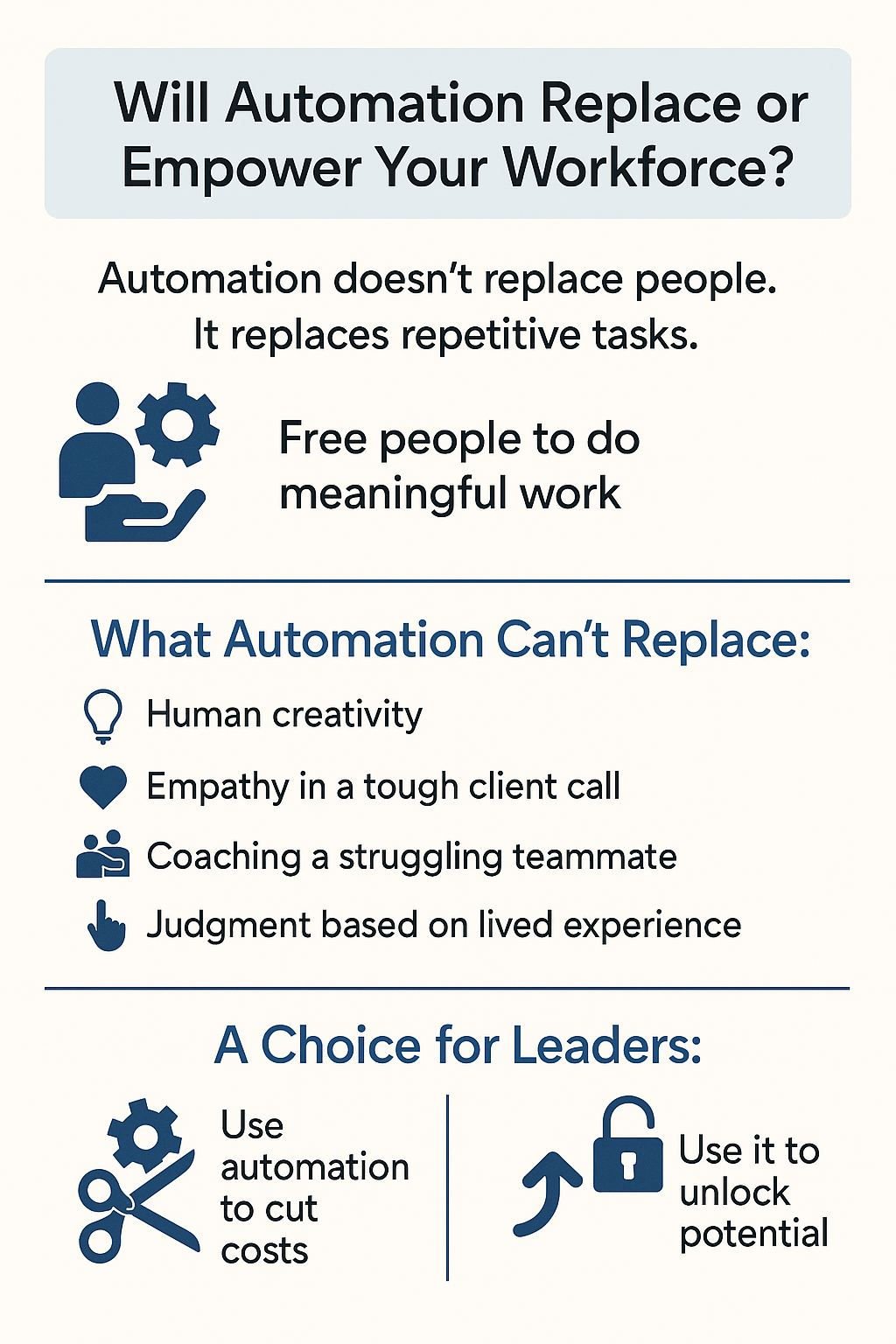There’s a question I hear often — from business leaders, engineers, and even my own team members:
“Will automation take away our jobs?”
It’s a fair question. And it deserves an honest, human answer.
After working on multiple digital transformation initiatives across industries, I’ve seen both sides of automation. I’ve watched it streamline processes, eliminate bottlenecks, and yes — in some cases — reduce the need for repetitive manual tasks.
But what often gets overlooked is something more powerful:
When done right, automation doesn’t replace people. It frees them.
From Repetition to Real Impact
In one of our transformation projects, we automated a legacy report generation workflow that used to take analysts two days every week. Once the process was automated, those analysts weren’t let go — they were upskilled. They began analyzing trends, guiding strategy, and contributing insights that actually shaped business outcomes.
That’s the power of automation done with intent.
It’s not about replacing jobs. It’s about replacing tasks — so people can do more meaningful work.
What Automation Can’t Replace
Here’s what automation can’t do:
- Build trust with a client during a difficult negotiation
- Think creatively about a new business model
- Coach a teammate going through a tough time
- Understand unspoken context in customer feedback
These are human strengths. And the more repetitive work we offload to automation, the more space we create for those strengths to thrive.
A Mindset Shift for Leaders
If you’re a leader navigating automation, here’s what I’ve learned:
- Start with empathy. Understand what your team fears — and where they want to grow.
- Involve them early. Let them shape the automation roadmap, not just react to it.
- Invest in learning. Upskilling is not a side project. It’s a core business strategy.
- Celebrate redeployment, not redundancy. If automation helps a team do something more impactful, make it visible and valuable.
My Takeaway
Automation is inevitable. But its impact is a choice — and that choice belongs to the people designing it.
We can build systems that squeeze every ounce of output from our workforce.
Or we can build systems that unlock their full potential.
I know which one I’d rather create.
What’s your experience been with automation — has it felt threatening or empowering? I’d love to hear your story.

